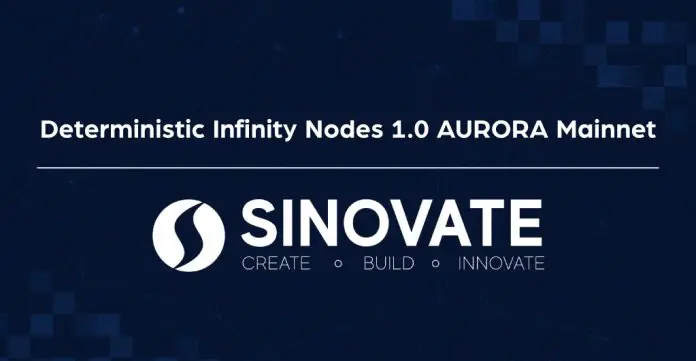
SINOVATE AURORA Mainnet upgrade will be available at 550,000 block height on 21 November 2020. The node owners will require to update their AURORA Mainnet Wallet to make sure that the already existing infinity nodes are compatible with the new DIN or the Deterministic Infinity Nodes codebase.
The hardfork will have to alter. Hardfork in blockchain technology is an essential protocol change that makes the prior invalid blocks on a network valid and the other way round. The users on a hardfork have to upgrade and update their protocol software to the latest version. So, the users have to switch or migrate to the new network manually on a hardfork. Whenever there is a change in the code of the underlying blockchain, a hardfork is required. The blockchain change may be in the algorithm, feature, or a rule. When a wallet update takes place, it only changes the interface of the wallet. However, when changes take place to the chain itself, it is called a hardfork. It is a complete divergence from the previous chain. On the other hand, a soft fork sometimes proves to be a solution making the older and the newer versions compatible. However, on a hardfork, it is a complete divergence and no compatibility between older and new versions.
SINOVATE is implementing the hardfork at height 550,000 on the SIN blockchain, which will activate the new codebase- Deterministic Infinity Nodes or DIN 1.0 AURORA Mainnet. The previous chain was a borrowed code from DASH legacy, but the new code is 100% SINOVATE unique-effort by their talented developers. It will offer an Incorruptible Data Storage or IDS cloud protocol, which will be cost-competitive, and the holders of SIN infinity node will enjoy the profits. All the previous nodes of SIN infinity would have to make the switch to enjoy the rewards. The new construct will lessen the users’ CPU demands to run a node, rapid communication with blockchain sync, a new wallet design, and equal distribution of rewards to the node owners. The new construct also offers a one-click setup through the wallet to set up a node. SIN blockchain is relatively lighter in weight on CPU demand owing to Schnorr signatures. The nature of the DIN code, the new chain will be resilient to splits and will allow SINOVATE to make reliable and efficient decentralized applications or dApps in the future.